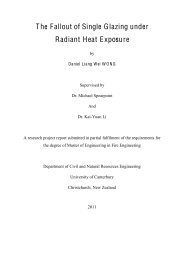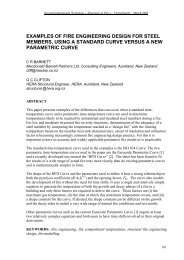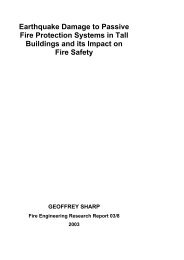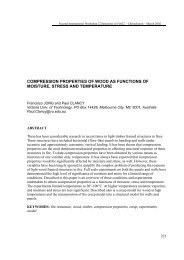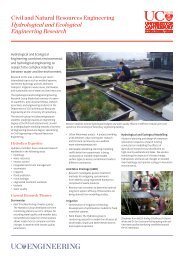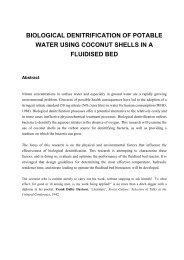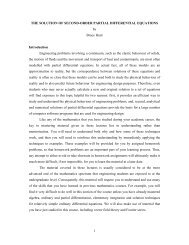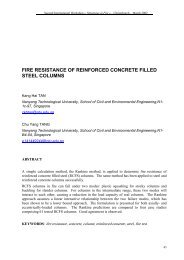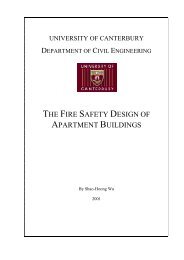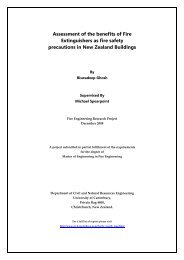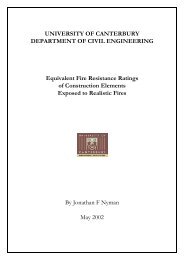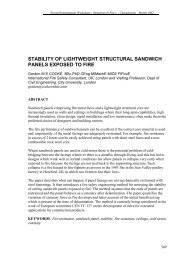FIRE DESIGN OF STEEL MEMBERS - Civil and Natural Resources ...
FIRE DESIGN OF STEEL MEMBERS - Civil and Natural Resources ...
FIRE DESIGN OF STEEL MEMBERS - Civil and Natural Resources ...
You also want an ePaper? Increase the reach of your titles
YUMPU automatically turns print PDFs into web optimized ePapers that Google loves.
elasticity with temperatures as given by NZS 3404, Eurocode 3, <strong>and</strong> from ECCS,<br />
(Bennetts et al 1986).<br />
1.2<br />
Modulus of Elasticity ratio<br />
1<br />
0.8<br />
0.6<br />
0.4<br />
0.2<br />
0<br />
ECCS<br />
Eurocode 3<br />
NZS 3404<br />
0 200 400 600 800 1000 1200 1400<br />
Temperature ( o C)<br />
NZS 3404 Eurocode 3 ECCS<br />
Figure 3.1: Variation of the Modulus of Elasticity with temperature as given by various sources.<br />
The formula published by ECCS is given below in equation 3.2 but has been<br />
replaced by the data points recommended by the Eurocode, EC3.<br />
E( T )<br />
−12<br />
4<br />
−9<br />
3<br />
−7<br />
2<br />
−5<br />
= 1−17.2x10<br />
T + 11.8x10<br />
T − 34.5x10<br />
T + 15.9x10<br />
T 3.2<br />
E(20)<br />
The temperature for which the modulus of elasticity reduces to zero is at a very<br />
low temperature of 625 °C for this ECCS equation, which is much lower than the<br />
zero strength. Comparing this limiting temperature with that of more recent<br />
studies suggests that this correlation is outdated. Recent studies such as that by<br />
Poh (1996), show that steel retains proportions of strength for temperatures up to<br />
1000 °C.<br />
Variation of Yield Stress with Temperature:<br />
The following formula, equation 3.2 a-b, is given in the New Zeal<strong>and</strong> <strong>and</strong><br />
Australian codes for the variation of yield stress with temperature. These<br />
relationships are based on a regression analysis of data found from elevated<br />
temperature tensile tests performed in Australia <strong>and</strong> Great Britain, Proe et al,<br />
(1986). The variation of yield stress with temperature is generally considered<br />
independent of the steel grade, so one formula is valid for all grades of steel<br />
(Purkiss, 1996)<br />
37



